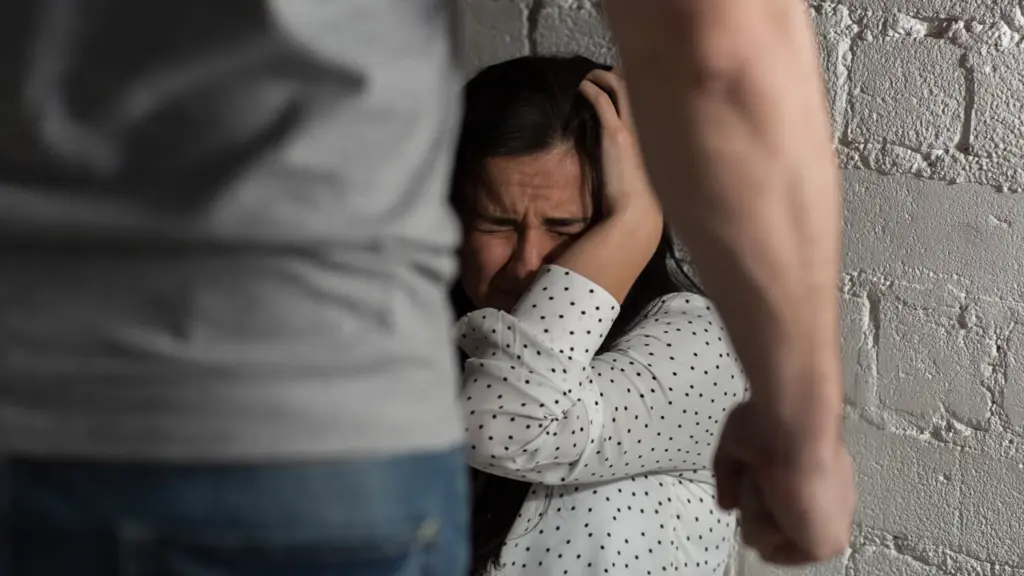Can you get VAWA based on a domestic violence protection order?

Many people have heard of a domestic violence protection order, but few truly grasp how powerful it can be, especially for immigrants seeking safety and stability in the U.S.
The stakes are literally life-and-death: CDC data shows that more than half of female homicide victims are killed by a current or former male intimate partner, which is why swift civil remedies matter.
Crucially, protection orders don’t just promise safety on paper, they deliver measurable results.
An NIJ-supported study in Kentucky found that every $1 invested in civil protective orders generated $30.75 in avoided societal costs, reflecting real reductions in violence and harm.
And if you’re also weighing immigration options, these legal steps can intersect with your path forward.
USCIS publishes quarterly VAWA self-petition statistics, giving survivors and their attorneys up-to-date trends to plan strategy and timelines more confidently.
This guide is presented by Moumita Rahman – Immigration Attorneys, committed to empowering survivors with clear, practical information and compassionate legal advocacy.
What Is a Domestic Violence Protection Order?
Understanding what a domestic violence protection order is, and what it can do, helps survivors make safer, faster decisions, especially when language barriers or immigration concerns add extra stress.
A domestic violence protection order sometimes called a protective order, restraining order, order of protection is a court order issued to protect a person from abuse, threats, stalking, or harassment by an intimate partner or family member. In many states, that means someone can petition a judge to order the abuser not to contact the victim, stay away from the home/work, surrender firearms, etc.
According to the resource at Women’s Law:
“A full protection order can … last for a specific amount of time or permanent. Unless you ask for a shorter amount of time, the order will last for at least one year.”
In simple terms: if you have been abused, you can ask for legal protection, and that may produce a domestic violence protection order.
While details vary by state, these orders are a civil safety tool available regardless of immigration status and often serve as crucial evidence when survivors pursue additional legal options.
What Is a Protection Order for Domestic Violence?
Survivors often hear different terms for the same safety tool. Here’s how a protection order for domestic violence works and why it matters, especially in immigrant communities.
A “protection order for domestic violence” is the same concept: a court-issued directive aimed at preventing further abuse by ordering a person to stop contact, stay away, or meet other conditions.
For immigrant communities, this is important because protection orders may help with safety, and may play a role in immigration relief.
For example, a study found a high percentage 87.9% of immigrant women who sought civil protection orders found them helpful.
Names vary by state, but the purpose is consistent, reduce risk quickly, document the abuse, and create a legal record that can support next legal steps.
Can You Get VAWA Based on a Domestic Violence Protection Order?
This section explains how a domestic violence protection order interacts with immigration relief under VAWA, clarifying what the order can, and cannot, do for your case.
What is VAWA?
Before connecting the dots, it helps to define VAWA clearly.
The Violence Against Women Act VAWA is a federal law in the U.S. that, among other things, allows certain victims of abuse who are spouses, children or parents of U.S. citizens or lawful permanent residents to self-petition for a green card without the abuser’s knowledge or help.
The agency that handles these cases is the U.S. Citizenship and Immigration Services USCIS.
In short, VAWA creates a path to safety and status, separate from the abuser’s control.
Does Having a Domestic Violence Protection Order Automatically Qualify You for VAWA?
Many survivors assume the court order is enough on its own, here’s the key clarification.
No, having a protection order by itself does not automatically mean you qualify for VAWA-relief. The law requires several specific criteria.
For example, you must show that you were battered or subjected to extreme cruelty by a qualifying relative spouse, parent, child who is a U.S. citizen or LPR.
The protection order can be evidence of the abuse, but on its own it does not meet all the requirements.
Think of the order as strong supporting proof, valuable, but only one piece of the eligibility puzzle.
How Can a Domestic Violence Protection Order Help a VAWA Case?
While it isn’t automatic eligibility, a protection order can strengthen multiple parts of your filing.
Here are some practical ways the order may help:
- It shows there is recognition by a court that abuse occurred.
- It may document dates, relationship, nature of abuse, and the legal response. That strengthens your story and evidence for VAWA.
- It may support the “good moral character” requirement or show you took steps to protect yourself.
- It may help if the abusive relative is a U.S. citizen or LPR, because VAWA requires that relationship.
Bottom line: a domestic violence protection order doesn’t guarantee VAWA, but it can be pivotal evidence when combined with the statute’s other eligibility requirements.
How Long Does a Domestic Violence Protection Order Last?
In New York City, the timeline is set by New York State law, and it’s more specific than generic “one-year” rules you may see for other places.
- Family Court final orders: In most cases, a final Order of Protection from Family Court can last up to 2 years.
If the judge finds aggravating circumstances for example, serious injury, weapon use, repeated violations, the order can extend up to 5 years. - Criminal Court temporary orders (TOPs): In criminal cases, judges frequently issue temporary orders that take effect immediately and last until the next court date and can be extended while the case continues.
- How long can a final order run in criminal cases? Depending on the case and statute applied, final orders from Criminal Court can last from one year to several years.
- Renewals/Extensions: Survivors can ask the court to extend an order before it expires if protection is still needed.
Bottom line for NYC: expect up to 2 years for most Family Court final orders with up to 5 years when the law’s aggravating-circumstance criteria are met, temporary orders that stay active between court dates, and the ability to request extensions when risk remains.
How Often Are These Orders Violated?
Research shows mixed, but concerning, patterns: many abusers respect the court’s order, yet violations remain common and often under-reported.
- A study found that protective orders are violated at a rate of between 44 % to 70 % in some studies.
- One study: in five Kentucky jurisdictions, half the women who received protective orders did not experience a violation within the following six months; for the other half, levels of violence and abuse declined significantly compared with before the order.
- In Los Angeles, for example, data showed that in one year there were 5 126 calls about domestic violence restraining orders, but only 765 reports of violations, fewer than 15 % became official violation reports, suggesting under‐reporting.
Bottom line: protective orders reduce harm for many survivors, but violations still happen, and not all are reported.
Document every incident and seek enforcement promptly to strengthen safety and the legal record.
Why Do You Need an Attorney?
Navigating both the U.S. legal and immigration systems can be overwhelming, especially when you’re also coping with trauma.
For Latino migrants, a domestic violence protection order is only one part of a much larger process.
Having a knowledgeable attorney ensures that every legal and immigration step works together toward your safety and long-term stability.
- Seek safety first: If you are in immediate danger, call 911.
- Get the protection order: Contact a local domestic violence advocacy group, legal aid or attorney and ask about filing a domestic violence protection order in your state.
- Keep copies: Once the order is issued, get certified copies, proof of service, and keep them safe.
- Track any violations: If the abuser violates the order, call the police, get a report, save evidence.
- Gather documentation: For a VAWA case, you’ll want evidence of relationship (marriage, child, parent), evidence of abuse medical records, police reports, protection order, testimony, proof of good moral character, proof you lived with the abuser.
- Consult with an attorney: Contact a qualified immigration attorney experienced in VAWA and domestic violence cases. At Rahman Law PLLC you can contact us for a free consultation.
- Understand your eligibility: The protection order helps, but it does not alone grant you relief. You must meet all VAWA criteria or consider other relief.
- Respect confidentiality and safety: Let your attorney know your immigration status concerns; they should protect your confidentiality and explain risks clearly.
Every survivor’s path is unique, but having the right guidance can make all the difference.
The team at Moumita Rahman – Immigration Attorneys is dedicated to helping Latino migrants understand their rights, stay safe, and build a secure future in the U.S.
Your Path Forward: Turning a Domestic Violence Protection Order Into Hope
Surviving abuse takes courage, but rebuilding your life takes knowledge and support.
A domestic violence protection order is more than just a legal document; it’s proof that your story matters and that the law recognizes what you’ve endured.
For many Latino migrants in the U.S., it’s also the first step toward stability, safety, and, under VAWA, a possible path to lawful status.
While the order itself doesn’t guarantee immigration relief, it can be pivotal evidence when combined with strong documentation, honest testimony, and professional legal guidance.
Each case is different, but every survivor deserves protection and a fair chance to start again.
At Moumita Rahman – Immigration Attorneys, we believe every survivor’s voice deserves to be heard and protected.
If you or someone you know has a domestic violence protection order and needs help understanding the next steps under VAWA, reach out to our compassionate team today and schedule a free consultation.
If you liked this article, you may also be interested in:



